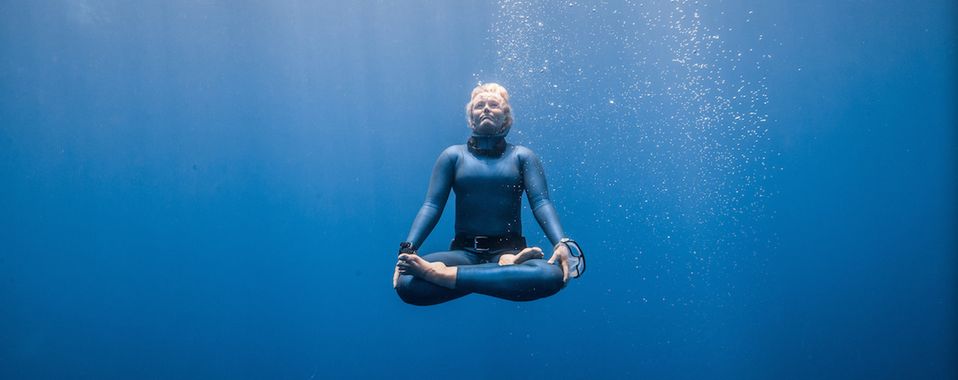
What is freediving
Free diving is a special kind of depth diving with breath holding. Through the use of special techniques, freedivers use their physiological resources to extract the maximum possible from the dive.
Appearing many centuries ago as a result, rather, of the need for diving, today freediving is recognized as a sport, hobby and even a special philosophy of life. And what do you know about this lesson?
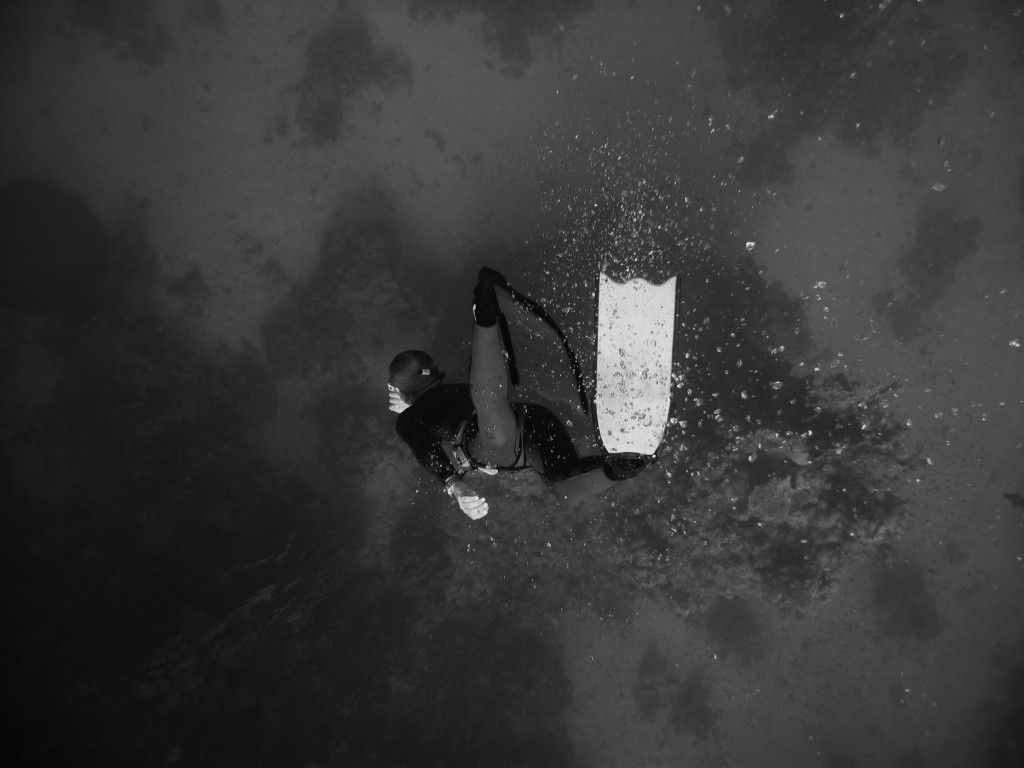
Freediving - a sport with a rich history
Freediving is such an ancient occupation that it is impossible to say exactly when it appeared. It is known that in ancient Greece, warriors dived with breath hold without scuba gear to commit sabotage on enemy ships. In Japan, there were divers fishing for pearl fishing.
Even today, there are still peoples in different parts of the world that have preserved ancient customs, which have become their cultural characteristics. Someone is doing this for the purpose of entertaining tourists, while others are pursuing certain everyday goals. So, for example, in the Philippines there are still “sea gypsies” (badzhao), in Polynesia - divers for pearls, in Japan - “people of the sea” (divers Ama).
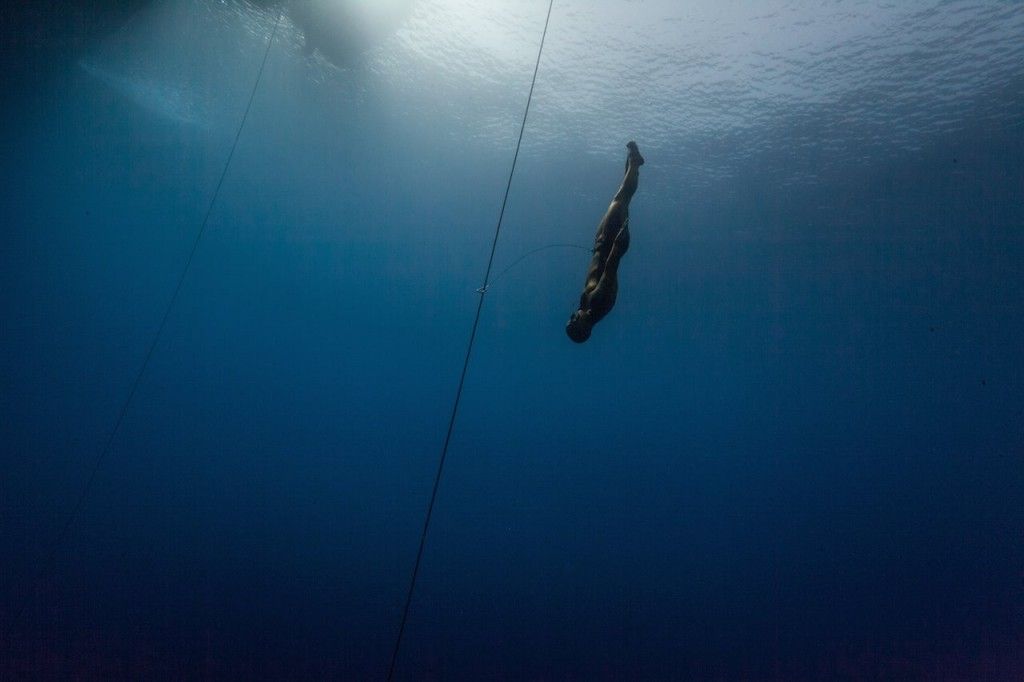
Deep Freeding Records
The term "freediving" itself appeared in the 20th century thanks to Raymond Bush. He owns the very first record of freediving in depth - 30 meters. He installed it in 1949. It is not surprising that soon there were athletes who want to surpass this result. And there are those who have it turned out.
Later, Alberto Novelli and Ennio Falco beat the Bush record, setting a new border - 40 meters. In 1960, Enzo Mallorca overcame her, and he managed to dive to a depth of 49 meters. After six years, he demonstrated his improved skills, having achieved a mark of 54 meters.
AMONGLY BUT ALL IN THE SAME 1966, THE FRENCH JAIS PAUL BEATS THE RECORD OF MAYORKI, DOWN THE HOUSEHOLDERS'S MORE THAN YOU HAVE ANNOUNCED RESPONSIBLE MEANS, THAT 50 MORE THAN 50 METERS OF THE PEOPLE ARE THEIR MEETING THE MORE THAN 50 MEETERS OF THE PEOPLE ARE THE MYTH THEM, IT'S MORE THAN 50 METERS OF THE PEOPLE ARE OUT OF THE WORLD THROUGH THE MORE THAN 50 METERS OF THE PEOPLE ARE OUT OF THE MYTH THAT 50 MORE THAN 50 METERS OF THE PEOPLE ARE THE DEVELOPED MYTH THROUGH THE MORE THAN 50 MEETERS OF THE PEOPLE HAVE THEIR MYTH THROUGH OUT 50 METERS OF THE PEOPLE THE WORLD'S DEVELOPMENT BOXES THE MYTH THROUGH OUT 50 METERS OF THE PEOPLE THE WORLD THROUGH THE MORE OVERSEURS MYTH.
Free diving types
There are three main types of freediving:
- Amateur (recreational). Those who simply love the underwater world and its beauty are engaged in it, immersing on depth.
- Sports. Its purpose is to take classes in order to achieve new records, to participate in competitions. Sportsman freedivers constantly train, pass standards, receive qualifications.
- Commercial. This kind of freediving is characterized by the fact that it is aimed at receiving earnings or some other benefit. These include divers descending to the depth beyond the sea gifts (pearls, shells, corals, etc.); freediving instructors; guides for divers, etc.
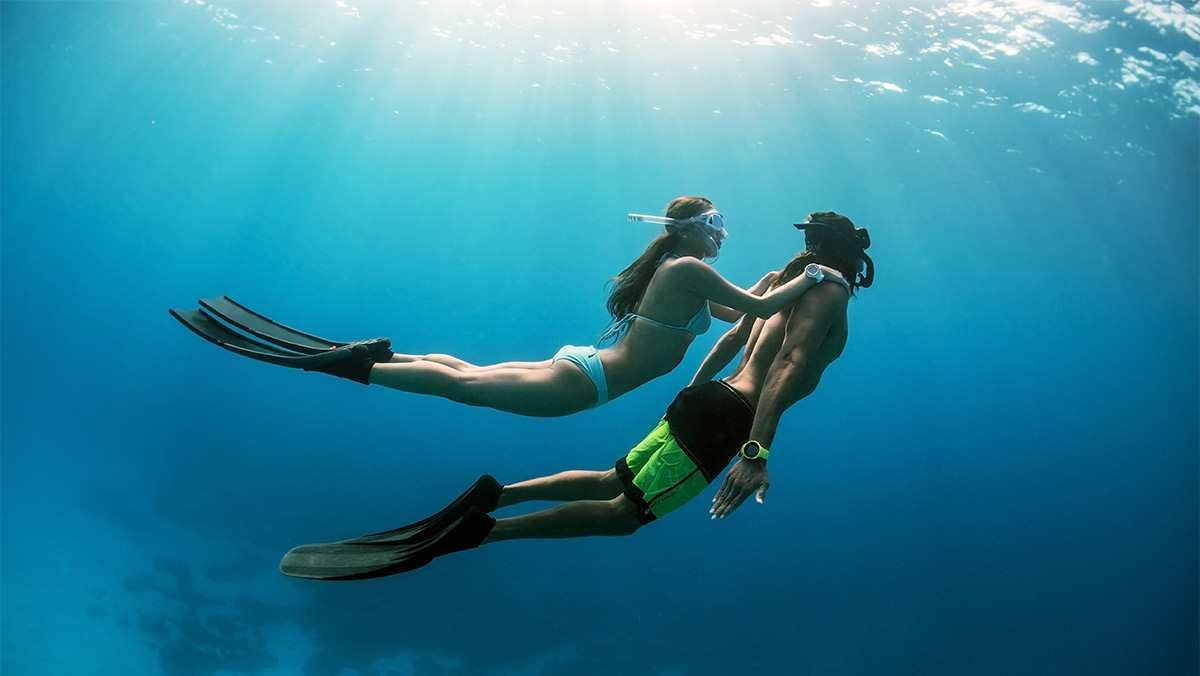
THERE ARE SEVERAL DISCIPLINES IN FREEDIVING. ALL OF THEM CAN BE DIVIDED INTO TWO MAIN GROUPS - PRACTITIONED IN THE POOL, AND CONDUCTED IN OPEN WATER.
Among those disciplines that hold in the pool, can be identified:
STA (swimmer in a supine position under water holds your breath);
DNF (diving and moving forward without using flippers);
DYN (according to the technique of execution corresponds to DNF, the only difference is that in this case monofiners or ordinary flippers are used)
Open-water freediving is also represented by individual disciplines:
CNF - freediver dives to the depth without flippers;
CWT is the same as the previous version, only diving occurs with flippers;
FIM - immersion is performed using a cable, and when raised, the freediver uses only the power of his own hands;
VWT - diver plunges with weighting agent (load);
NLT - there are no special restrictions in this discipline (freediver dives and swims as he wishes).
In relatively large cities, there are clubs that teach freediving for beginners. Everyone who likes diving, who wants to test their physiological abilities and achieve personal records, choose this sport.
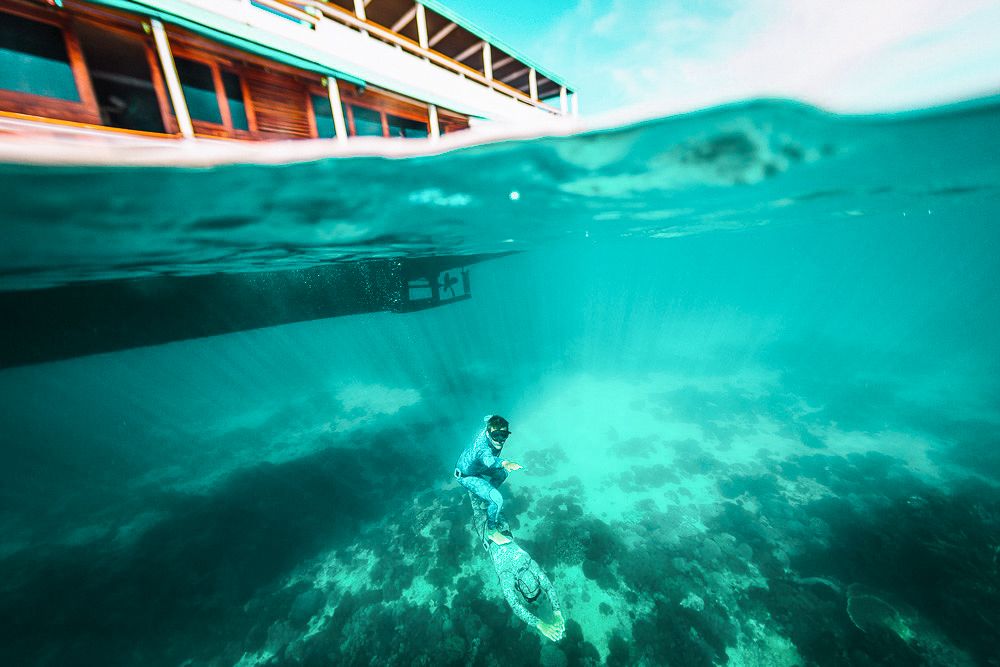
Reflexes of an organism on which freediving is based
Freediving involves holding your breath when diving to a depth. It is based on the following reflexes of the human body:
Laryngospasm. The human respiratory system is designed so that when a person is immersed in water, breathing is impossible. Even if the freediver loses consciousness directly under the water, he is not threatened with choking. When lifting it to the surface, it is often enough to blow it on his face so that his breathing is restored.
Bradycardia. When submerged under water (even only faces), the heart rate slows down. This is only possible if a person is absolutely calm, relaxed and did not take caffeinated beverages or drugs shortly before the dive. There is even a recorded world record for slowing the heartbeat of a freediver - up to 6 times per minute.
Vasoconstriction. Due to the fact that when immersed in water, blood vessels constrict, this allows you to lose as little energy and heat as possible at depth.
Blood shift. This mechanism is truly amazing, as it allows the freediver to descend to a depth of more than 100 meters! When it reaches 40 meters, the diver begins to circulate blood in a small circle. This allows you to supply all necessary vital organs (brain, lungs and heart), and at the same time save oxygen consumption.
The human body is amazing and, as you can see, it provides everything to make safe dives. But, rely solely on the unconditioned reflexes are not worth it. The freediver must possess important diving skills for deep diving:
The ability to «purge». Performing this procedure even at a shallow depth allows the intra-ear pressure to equalize in order to prevent damage to the eardrum due to water pressure.
Physical training. The freediver's muscular system must be trained. This will help waste less energy and oxygen.
Trained respiratory system. The lungs should be filled with as much air as possible. Yogic breathing practices are well suited for this.
Swimming technique. In order to move underwater faster and more vigorously, you need to master the proper swimming technique. The freediver learns to eliminate unnecessary movements that consume a lot of energy and oxygen.
Ability to abstract from external and internal irritants. When diving you need to be calm, detached, relaxed. In the depths there is no place for worry, panic, unnecessary thoughts. All of them take away valuable energy and contribute to the rapid reduction of oxygen supply.
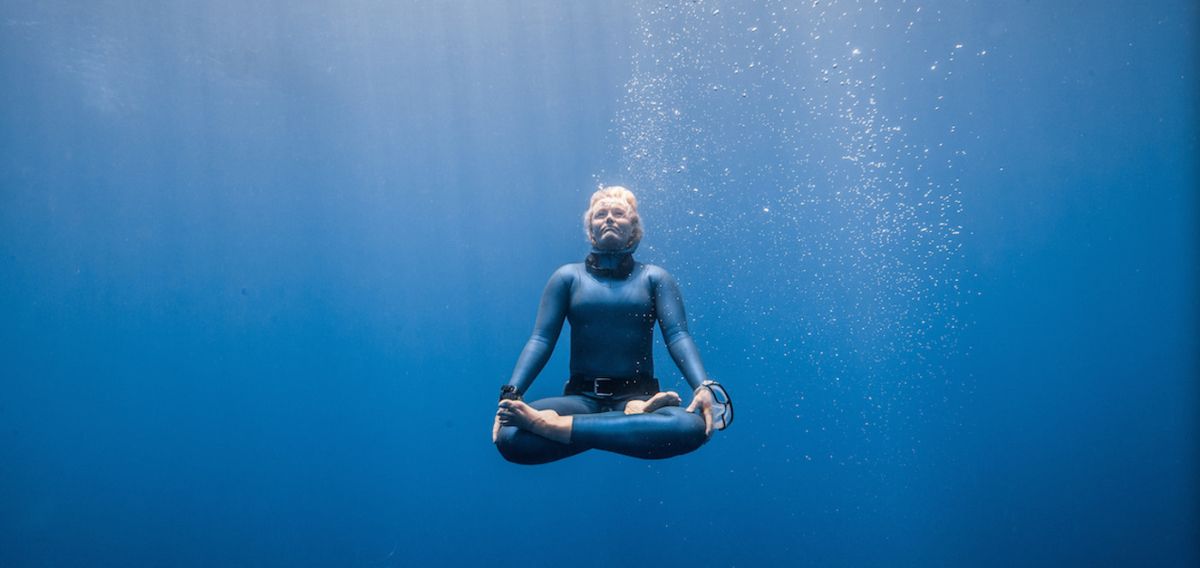
Features of training
For beginners to form independently such skills and skills is difficult. Need professional help. Learning freediving, conducted under the guidance of experienced trainers, will allow you to comprehend the secrets of this challenging, but such an attractive science of deep diving.
Necessary equipment for freediving
In order to dive under water, you will need equipment. Not only the comfort of a freediver, but also very often his safety will depend on him.
What should be a person who is preparing to dive into the depths:
Suit. It must be elastic, so as not to hinder movement, and at the same time dense, in order to protect human skin from underwater inhabitants. You need to think about purchasing special socks and a helmet (if they are not included in the ready-made set of costume).
Fins. It is desirable if they will consist of different levels of rigidity. This will make swimming underwater comfortable. To move as quickly as possible, it is better to choose flippers with a length of 90 cm and a blade of 70-90 cm.
Mask and snorkel. They should not cause discomfort. You should choose products made from high-strength and high-quality materials.
Other items. This should include a belt with weights (should be easily removed), a bright buoy with a cable (necessary for the diver to rest, as well as an emergency situation - for an easy search by rescuers), a watch-computer (for those who plan to set a record ), underwater lamp, knife.
FROM THE CORRECTLY SELECTED EQUIPMENT AND ADDITIONAL DEVICES COMPLETELY CAN DEPEND ON HEALTH AND LIFE FREEDIVER.
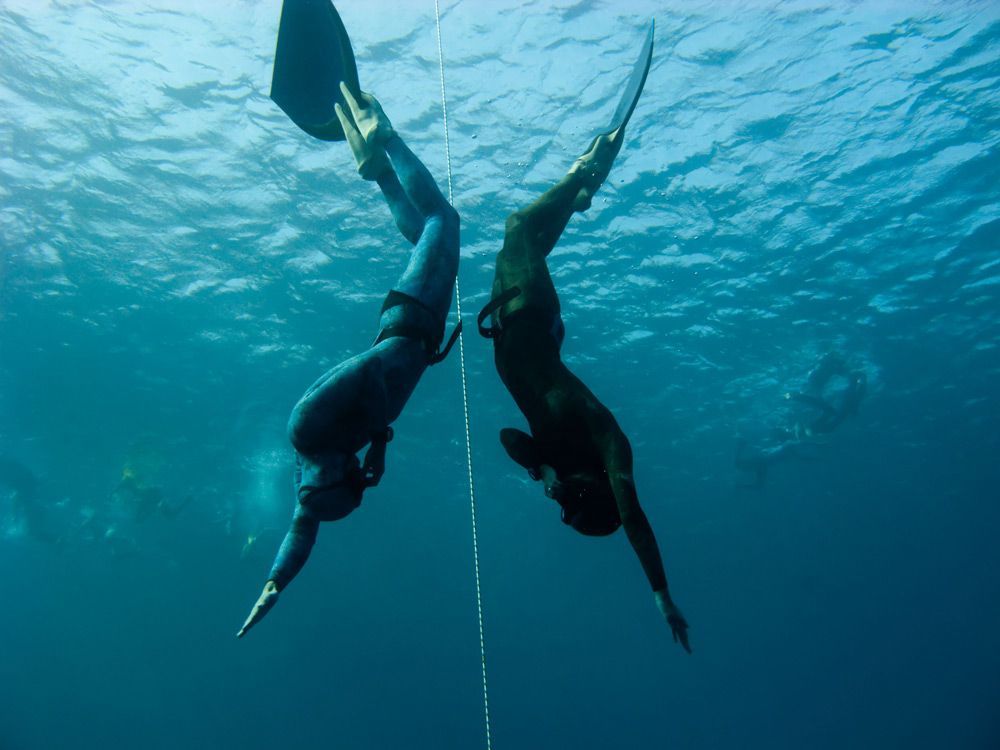
Contraindications and possible risks
Freediving is an extreme sport, so not everyone can do it. Contraindications can be divided into those that are excluding any possibility of freediving, as well as those that are not strict restrictions.
Before starting the first free-diving exercise, you should visit a number of medical specialists: a neurologist, an ENT surgeon, a surgeon, a dentist, a cardiologist, an ophthalmologist. They will conduct the necessary surveys and tests. And no need to be lazy, because not only health can depend on this, but also the life of the one who decided to seriously engage in diving. Freediving will be banned if there is at least one of these pathologies:
- asthma;
- heart disease, valve, aorta;
- damage to the respiratory system of a chronic or mechanical nature;
- presence of neoplasms of different origin and character;
- mental illness;
- chronic ear diseases.
It is also worth highlighting the diseases and conditions in which free diving is undesirable, but strict restrictions are not imposed:
- low hemoglobin level;
- blood disorders;
- hypertonic disease;
- violation of the functioning of the limb or its absence;
- diseases of internal organs that occur in a chronic form;
- pregnancy;
- the period of menstrual bleeding;
- runny nose
IN CASE OF THE OWNERSHIP
The freediver must be prepared for the possibility of unforeseen situations that could lead to injuries or dangerous conditions:
- Loss of consciousness due to hypoxia.
- Barotrauma resulting from differences in pressure of the water column and in the human body.
- Muscle failure («samba»), developing due to oxygen starvation.
- Decompression sickness. Characterized by the formation of vesicles in the blood, making it difficult for the organs to receive the necessary nutrition.
It must be remembered that the majority of injuries a freediver receives due to «wrong» behavior under water. There should be no fuss, excitement and haste. This is the only way to protect yourself from errors as much as possible. That's all the basic information about freediving. Now you know about this type of diving more.